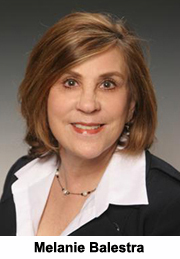Problems Arise from Boards Holding Different Providers to Different Standards
 By Melanie Balestra, NP, Esq.
By Melanie Balestra, NP, Esq.
Most NPs believe that if their physician agrees with their care of the patient and signs their standard procedures, they are protected from complaints from the BRN. This is simply not true.
In recent cases that I have been involved, the supervising/collaborating physician has agreed with the care that the NP has given the patient and the NP has consulted with the physician appropriately. However, the BRN ruled that the NP did not meet the nursing standard of care. It does not matter that the NP met the medical standard of care. The nursing board has jurisdiction over RNs and NPs and appears to recognize nursing care, not medical care.
Although NPs cannot practice independently in California and have to practice under the supervising physician, the BRN frequently does not recognize the supervising physician’s opinion or support of NP care. This makes it very difficult for the NP’s defense in a disciplinary case. The BRN is ultimately deciding that the physician’s decision was wrong, which is not under their purview.
I have been involved in several cases where there is dual certification as a PA and NP. The BRN placed the NP on probation and the PA board dismissed the case.
There is definitely something wrong with this picture. Medical care is medical care and the standard of medical care is across the line. Nurse practitioners, physician assistants and physicians are not all under different medical standards of care. Therefore, it appears that the BRN truly does not understand the medical care that NPs are educated and trained to give.
Our fight for independence has been impossible under the current BRN. After meeting with nursing and NP organizations throughout the states, one common component came across for reaching independence. This missing component in California is support from the largest nursing union, CNA. Although NPs have the support of SEIU, we have never had the support of CNA. CNA will not support a separate scope of practice for NPs.
Under the Medical Board, physician assistants have their own board. Why don’t advanced care practitioners have their own board? A board consisting of advanced care practitioners would be able to evaluate and understand standards of care for nurse practitioner better than a board with only one NP.
We have fought long and hard to remain under the Board of Registered Nursing. In most states, NPs are regulated under the Boards of Nursing. However, while physician assistants under their own board go forward in California, nurse practitioners appear to be at a standstill.
Melanie Balestra is both an attorney and a nurse practitioner. She is a former President of CANP, and is currently President of the American Association of Nurse Attorneys, which in 2016 honored her with the award for Outstanding Health Law & Compliance Section Member. She has law offices in Irvine and Newport Beach, and continues to work part time as a PNP and Director of Pediatrics at the Laguna Beach Community Clinic.